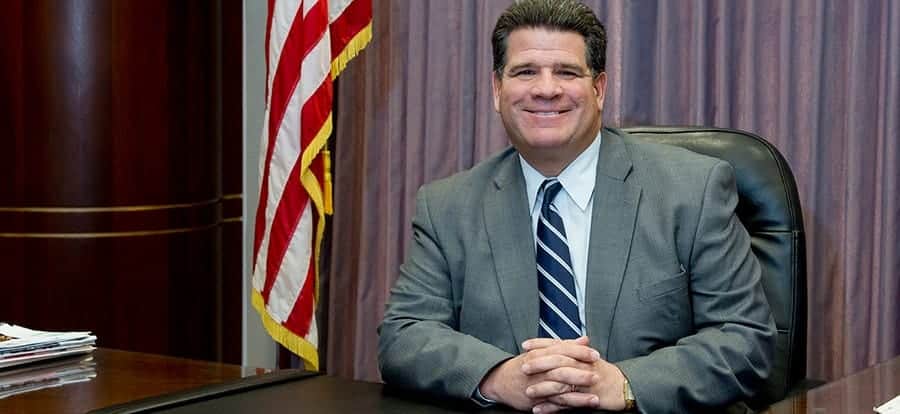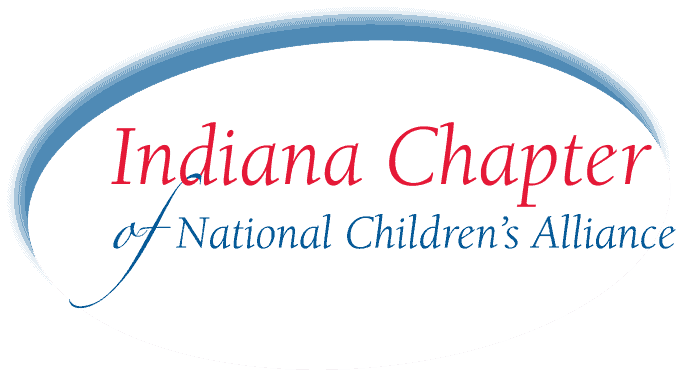Brent Toderian, the former City Planner for Toronto, Canada once remarked, “The truth about a city’s aspirations is not found in its vision. It’s found in its budget.” Cities, towns, and counties across Indiana have been stuck in a cycle that’s increasingly harder to set any lofty vision at all: funding is down, then a recession hits and funding goes down, then property values go down and so does more funding. It’s left a lot of municipalities struggling to find ways to maintain services, let alone add new ones.
This leaves Indiana’s child advocacy centers stuck between a rock and an immovable budget. On one hand, funding for CACs isn’t granted by the State of Indiana, but instead through the Department of Child Services. This makes Indiana unique among most Midwestern states. While the working relationship with DCS and Indiana’s child advocacy centers is excellent, it removes a level of funding consistency many other states’ CACs enjoy. On the other hand, a CAC’s nonprofit status allows for nearly limitless creativity in fundraising and keeps the door open to federal and state grants.
Conspicuously absent from the list of funding sources is local government. Most municipal governments “don’t have a lot of extra money,” says Lafayette, Indiana Mayor Tony Roswarski. Mayor Roswarski is in his 33rd year working with the City of Lafayette and has seen a lot of changes there and around Indiana government. Mayor Roswarski has served on the Lafayette City Council and before that spent 20 years as a Lafayette Police Officer, in roles ranging from patrol officer to the Juvenile Division Lieutenant and retired at the rank of Captain. Today he is in his 13th year as Mayor of the city of Lafayette.
Mayor Roswarski remarks, “We strive to put resources in place to ensure that our police department can adequately and efficiently handle everything from 911 calls to detective case work, as well as continuing interaction with local advocacy centers and organizations. It’s not easy for local government to be a funding source, so we provide support through service and education, by training our officers to work cases and interact with CACs like a partner.”
Lafayette is providing an additional service that many municipalities are unable to financially support, as Mayor Roswarski notes, “We have a full-time, dedicated victim advocate on-site in the police department.” Victim advocates aren’t available in many Indiana counties and play a significant role in ensuring families get help in navigating complicated systems and processes.
There are some counties and cities in Indiana giving direct cash donations to their local child advocacy centers, but only in a handful and usually not with significant sums of money. For many mayors and councils across Indiana and the U.S., it may seem impossible when you’re “trying to adequately fund public safety, infrastructure and economic development” as Mayor Roswarski does, but he also urges mayors and other municipal executives to look for new, creative ways of helping.
“In my 33 years of working for the city I can say most people are not aware that a CAC is even in their community. People are more likely to know about places kids go when they’re in trouble, not the steps that are taken to protect them. In addition, people are not aware of the extensive work that goes on in a CAC. Lafayette’s child advocacy center, The Heartford House, for example, releases a lot of data about their work, but the majority of people don’t want to talk about child abuse. We as a community have to recognize and understand this issue on a local level. It’s like mental health. We have to keep talking about it and work together to find solutions.”

Mayor Roswarski continues, “That’s the challenge for CACs: how do you come up with financial support to continue your mission when people haven’t heard of you?” “We must give our CACs a voice.” Just talking about problems in a community puts them in the forefront of public discussion, which can in turn help them and other worthy organizations better engage with citizens and raise funds.
That kind of public dialogue leads to other obvious questions surrounding why abuse happens, how families break down, and how to best protect children. “For a long time people treated abuse like a hidden secret and families buried it when it happened. Generations of lives get destroyed and those scars carry forward and act out into adulthood. All of that perpetuates the situation. Fortunately, a lot of that is changing, even with domestic violence. We handle it much differently today than we did years ago. It’s no longer “just a family problem, it’s a community problem”, says Mayor Roswarski.
While it might not be “just a family problem” anymore, keeping up with an increasing demand is a funding problem local governments will continue to wrestle with. “I think the State should play a role in funding CACs. Protecting our children has to be one our state’s highest priorities and CACs need a stable funding stream to increase effectiveness, accountability and measurable outcomes,” says Mayor Roswarski.
Continuing, he says, “I’d like to see more Pre-K education and Kindergarten readiness programs, too. We have a program here in Lafayette called Read to Succeed that received national attention with its goal to get every child to a 3rd grade reading level. We testified in Washington that volunteers are reading to third graders across all 19 elementary schools in Tippecanoe County. Only a small amount of money is needed for coordination and training, and we are proud to say we have 650 dedicated community volunteers working inside our schools, alongside our kids, each and every week.”
With 650 volunteers, communities like Lafayette and Tippecanoe County are showing that mayors and councils can have a substantial impact on important causes. They’re showing that time and attention can sometimes do just as much or more than financial considerations. Coordinated efforts from a community can prove the aspirations of a city are found in its budget and the hearts of its residents and volunteers.
